Family dysfunction is similar to history: it repeats itself. The cycle will continue until someone in the family (or even multiple family members) consciously makes the decision to stop the behavior, and get to the bottom of the source of the dysfunction. This action ultimately cures the dysfunctional elements, and changes the course of the family, sparing future generations and helping reverse damage already placed upon the present members of the family.
In 2017’s Gifted, Frank (Chris Evans) tries desperately to stop history from repeating itself to spare his niece Mary (Mckenna Grace) the same pain, and the same fate, as her late mother Diane, who committed suicide when Mary was just a baby. However, his overbearing mother, Evelyn (Lindsay Duncan), still hasn’t learned her lesson and tries desperately to drive Mary in the same direction Evelyn once steered her daughter toward.
Dysfunction emerges from a multitude of reasons and sources; Gifted is an example of the importance of learning from past mistakes. It shows several kinds of dysfunction in just one family, but it also shows how each member overcame that dysfunction in their own ways.
Frank & Evelyn
Mother and son don’t see eye-to-eye. Frank only refers to his mother by her first name, and she doesn’t seem to care about that. It’s quite sad, but it’s their normal.
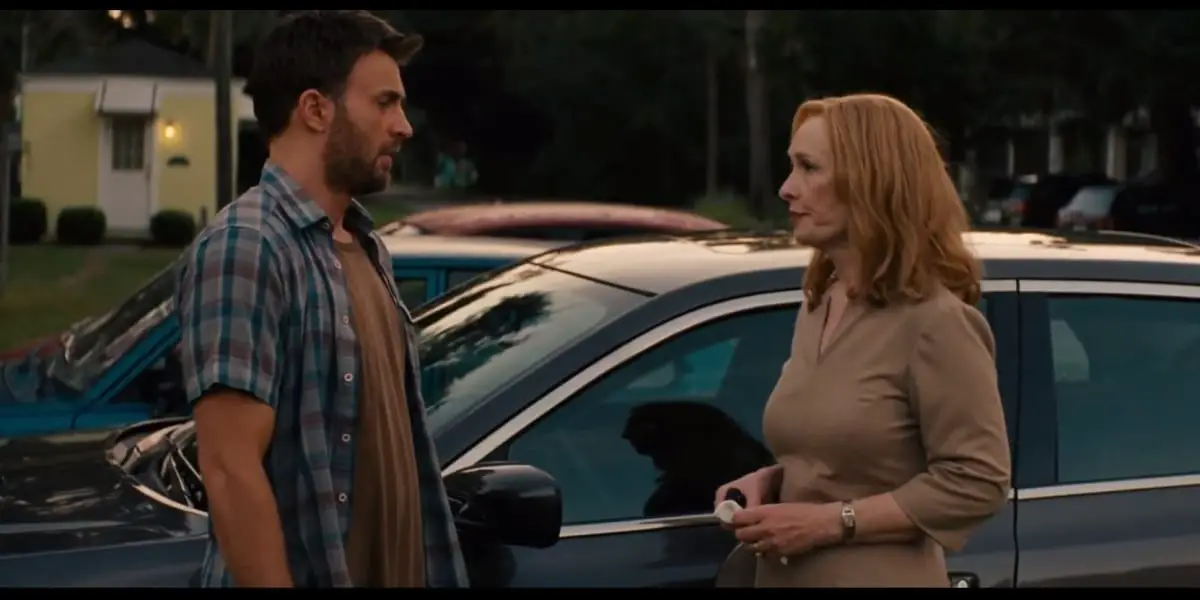
Evelyn isn’t shy about expressing her regret that she left England and her mathematician life behind to marry Frank and Diane’s father and move with him to America. It’s as though she doesn’t know what she’s doing or the damage she’s inflicting with her words—she may be a genius with numbers, but she knows nothing about the power of words. Even by the film’s conclusion, she’s still failed to learn that lesson.
Frank’s heard her express her regret before; it doesn’t even seem to faze him. He’s learned to just let it go and not take what his mother says personally, at least in that regard. It’s hard to do—it’s his mother, after all—but clearly he’s been subjected to years of this kind of verbal abuse, and Frank has, sadly, grown used to it.
That’s not to say he doesn’t ever let his mother get to him—he does. Evelyn can be incredibly brutal. Especially when she’s after something. Namely, Mary. She didn’t seem to want much to do with Mary until Mary was shown to be a child prodigy in mathematics, just as her mother was.
Evelyn, thinking she has a second chance to make it big in the mathematics world through her granddaughter, puts up a vicious fight for custody against Frank. He doesn’t have the money and resources that she does, and he becomes convinced that he’s bad for Mary, which is how Mary briefly ends up in foster care, breaking both Frank and Mary’s hearts. Evelyn ripped apart their little family for her own selfish desires, and even then, she continued pushing Mary in math, hoping that math would be Mary’s entire life—just like she did with Diane.
In any case, Frank and Evelyn, while they hold something akin to the respect of one another, aren’t particularly close. They clearly don’t trust one another, especially when it comes to Mary. Frank knows his mother well, but she doesn’t know him—and she underestimates him. Frank is a good guardian for Mary, exactly what Diane would have wanted. His sister chose him for a reason, and he has to go through a hell of a lot to remember why she did so, and why it was so important for Mary to be with him.
Diane was the math prodigy in their household when she and Frank were growing up. Evelyn took advantage of that and put all her time and energy into Diane. Frank was likely ignored often and pushed aside; amazingly enough, he doesn’t appear to hold resentment towards his mother or even his sister. He knew Evelyn had her own agenda and couldn’t help herself, and that Diane was swept into their mother’s dire need for success in the academic world. It appears that he was closer to his sister than he was with his mother, which makes sense. He knew Diane and could see her pain, even when Evelyn couldn’t—or refused to. He knew what Diane wanted for her daughter, and he did his best to fulfill her wishes.
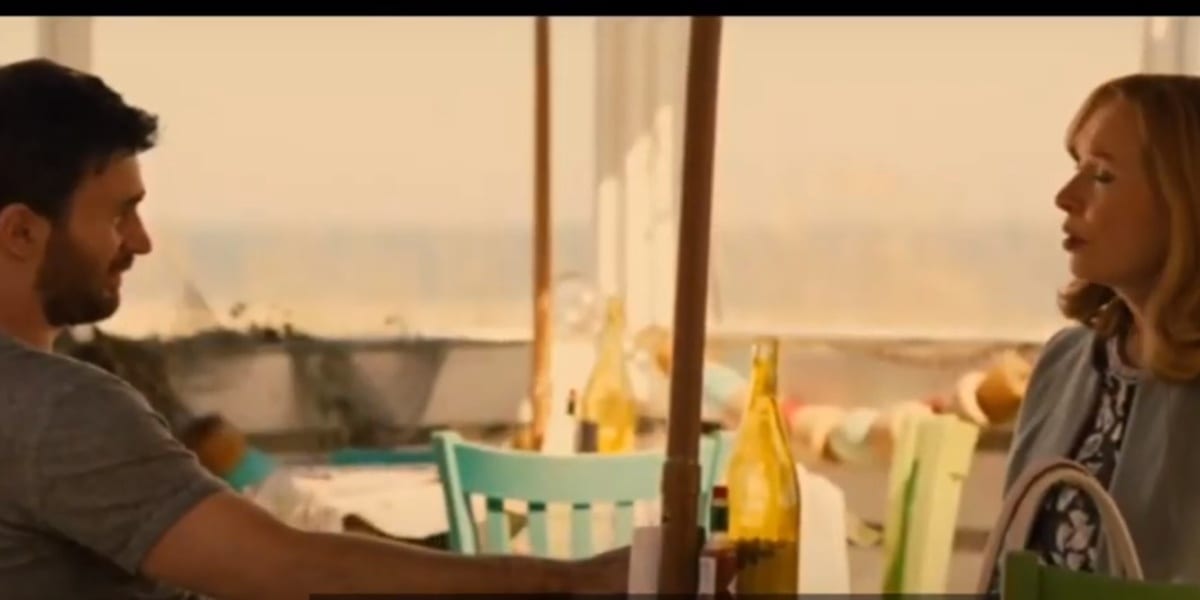
Though Frank does express regret that he wasn’t there when Diane needed him the most, which is understandable. That will likely be a scar he unfortunately carries. It wasn’t his fault—he didn’t know what was about to happen. Diane, for her part, was experiencing so much pain she couldn’t see the hurt she’d cause for her brother, daughter, and mother. It’s all one huge tragedy, but those left behind, particularly Frank and Mary, try to make the best of it.
Evelyn is far from the perfect mother or grandmother. She may be a brilliant academic, but she’s not much for family life, and that’s where her dysfunction stems from. She takes out her regrets on the wrong people and tries to live her dreams through Diane, then Mary, putting an impossible amount of pressure on them to succeed where she didn’t. Not to mention she considered it her responsibility to share Diane’s mind with the world as Diane was “one in a billion.” In any case, Evelyn was so desperate to achieve something in the field of mathematics that she was willing to sacrifice both Diane’s and Mary’s childhoods for her own gain, convincing herself that it was what they wanted when really, it was what she wanted.
Frank was spared that pressure because he wasn’t the prodigy his sister was, though he was smart and achieved success in his own way. His successes were likely overlooked by Evelyn and may have spawned emotions of feeling less than, or not good enough in his mother’s eyes. Though it seems he made peace with that at some point, knowing that if he accomplished something, he could be proud of himself, and that was more than enough.
Repeating Cycles
Diane never had a normal life. Her mother made sure that all she had time for was math. It’s no wonder Diane struggled with her mental health; she had no social life, no social skills, and nothing outside of academics. Life requires balance; it can’t just be one thing. Diane didn’t love math the way Evelyn did; she did it to appease her mother. And once Diane had solved the Navier-Stokes problem, she didn’t know what to do. She thought her life was over. Her life had been math, and once it was over, what was she to do next? That pressure, built up over years and years by her mother, finally got to Diane. She didn’t think about the freedom she could have enjoyed or the fact that she had a daughter to raise or could potentially make friends. She just ended her life.
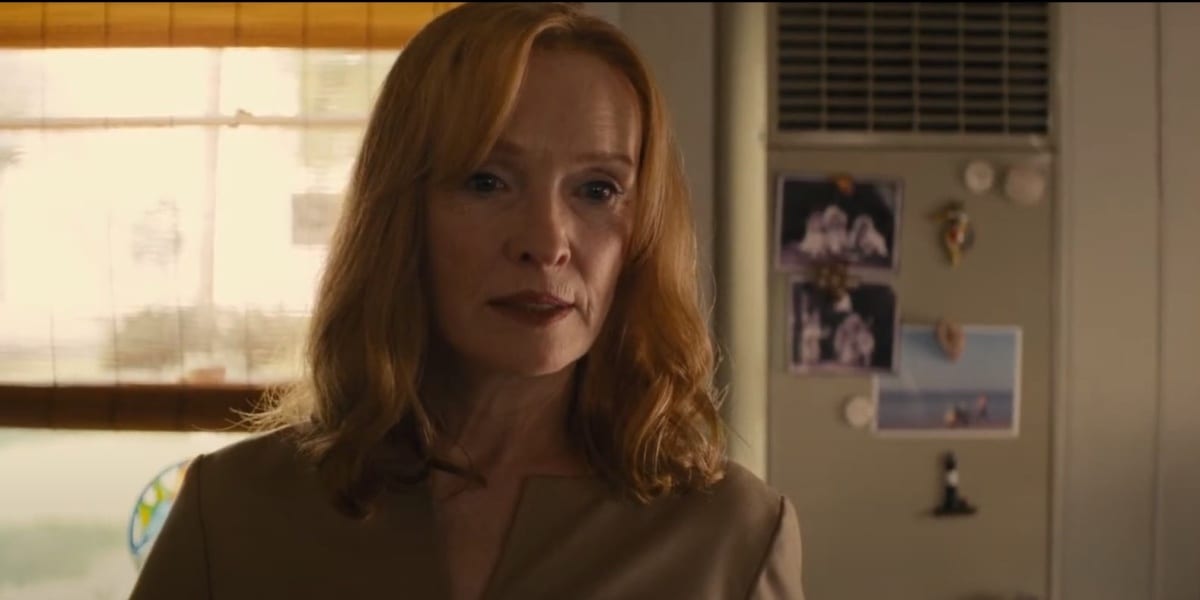
Evelyn didn’t learn from her mistakes with Diane. She was initially unaware that Diane had solved the Navier-Stokes problem, as Diane had instructed Frank to publish her work only after Evelyn’s death. That information comes to light when Frank bargains with his mother: he’ll give her Diane’s work to publish if she’ll let him have Mary. That’s all it takes. Evelyn is given what she wanted all along: Diane’s success. It’s crazy how Evelyn viewed Diane as weak because, as far as Evelyn knew, she’d failed to solve the problem. When Evelyn finds out that wasn’t the case, Diane is once again brilliant.
Evelyn is quite shallow in that way. One would think that she would love her daughter either way. Yet, that’s an unrealistic expectation. While many parents love their child just for being themselves, there are some, like Evelyn, that want something from them, and when that something isn’t fulfilled, the parent isn’t in the least bit interested in their child. They were never really concerned about their child to begin with, but rather, what their child could give them. What’s even worse is the fact that Evelyn never has a clue as to what she’s doing—and she gets what she wanted from the work Diane left behind in the end. It all seems unfair, but Frank didn’t care anymore at that point. He knew that giving Evelyn his sister’s work would spare Mary, but also that that would be what Diane would have wanted him to do on her daughter’s behalf as well. It worked out in that way—Frank gave Evelyn what she wanted so he could get what he wanted. It’s backwards, but it’s also functional, if that makes sense.
Frank saw the wrongs that Evelyn had done to raise and treat Diane, trying to right those wrongs with his niece, erasing that dysfunction the best way he knew how. Besides that, Mary is not her mother. Mary is an entirely different kind of person. Part of that is attributed to being raised by her uncle and having a different childhood from her mother. While children may share similarities with their parents, they are still their own person. Just because Diane followed a certain path and had a tragic death, it doesn’t mean that’s Mary’s fate. As Mary grows up, she’ll find out more about her mom and form her own opinions about her. The devastating part is that Mary has to grow up without her.
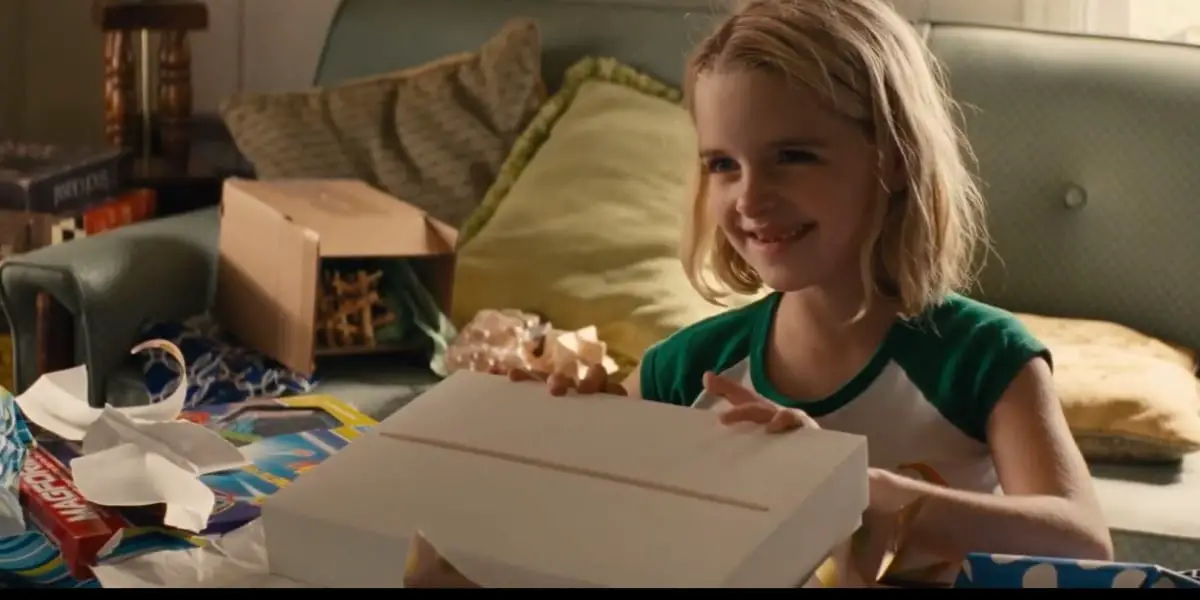
However, Mary being with Frank has ended the dysfunctional cycle in many ways. She gets a normal childhood, and she’ll pass that on to her future children, and they to their children, and so on and so forth. It’s amazing how one generation can erase the dysfunction of generations previous, and better the lives of generations to come in their families; it’s really an underrated accomplishment that deserves more credit, but credit isn’t really what it’s about—it’s about the changes made and the love and happiness that emerges thereof.
The Best Moment
Mary is incredibly upset when she learns that her father, whom she has never met, was in the very same state (as he appeared in court on Evelyn’s behalf) and failed to see her. She feels unloved and worthless, locking herself in the bathroom. Her father certainly isn’t any prize—he didn’t even know her middle name, and he hardly showed any interest in knowing her. Diane’s social skills were lacking, and obviously, her relationship with the man wasn’t exactly healthy, given he doesn’t seem to care much about her or their daughter, which is unfortunate because Mary won’t have either of her parents in her life.
However, what Frank does to help Mary feel better is that he shows her how much he loves her, that he will always be there for her, and that she is worth everything. He, alongside Roberta (Octavia Spencer), their neighbor and friend, take Mary to a local hospital. There, they wait for some time before a man emerges and tells his family that “it’s a boy” and Mary, Roberta, and Frank watch as the family embraces one another and celebrates. Frank tells his niece that that’s how it was when she was born, and she asks, “This happy?” and he confirms, “This happy.”
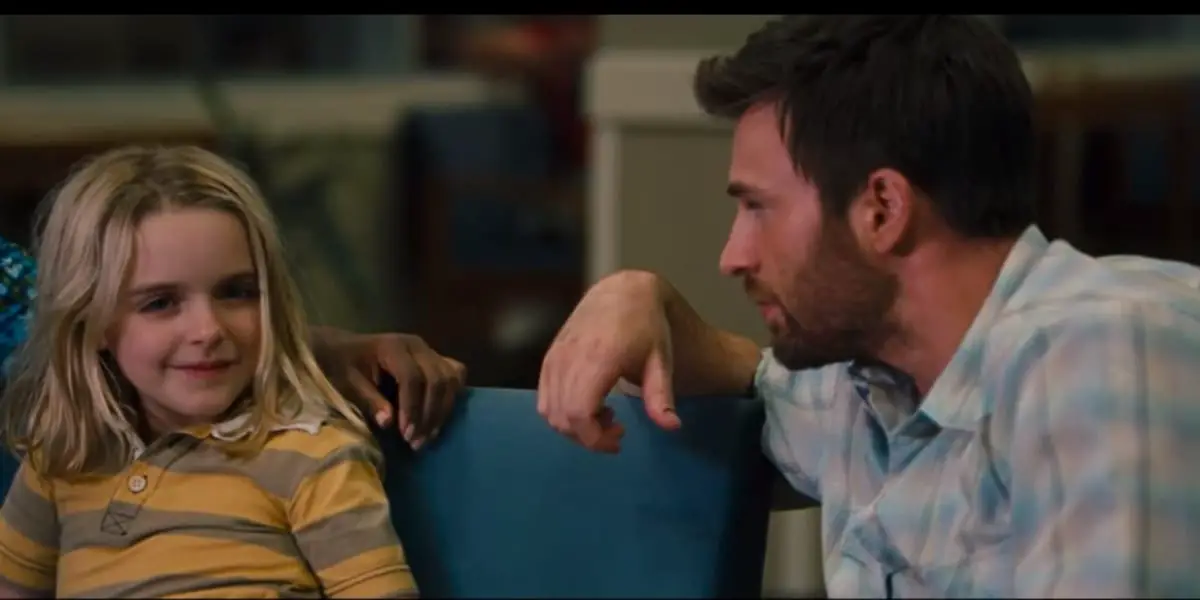
It’s a beautiful, heartfelt moment, and my favorite scene in the film. Frank is a genius in his own right—what a great idea to come up with to help Mary feel better! Frank has clearly shed numerous elements of dysfunction from his own childhood, and it has greatly improved both his and Mary’s lives. Plus, it’s a testament to Frank and Mary’s bond, and that even though her mother is gone, and her father is a deadbeat, Mary has people who love her, and that when she was born, she made their lives that much happier.



Love your insight into the movie. I know “Gifted” received mixed reviews but I enjoyed it. I found Evelyn’s character to be sad and lacking in emotion, love, and even true insight. It’s true that Evelyn doesn’t understand how her actions have driven the closest people around her away. Even her posh and prim 70 year old husband would rather rough it up in the mid West than stay with her!
I was curious as to why Diane decided to have her paper published after her mother passed. Your article describes what I suspected, that Diane wanted to deny her mom the only thing her mom wanted out of her. It makes you wonder why Evelyn decided to leave her life as a mathematician to have children if the academic life was so very important to her. Even her photo albums really only showed her life in ademics and nothing else.
At the end I expected Mary on her way out of class to pass by a portrait of her mom on the Millennium Problem wall but realistically that would probably take years to become accepted and I guess that’s not the point. I’m happy Fred has figured out a way to cultivate and challenge Mary’s mind while encouraging her to live a more normal childhood. It’s a life Diane would have wanted.
Just watched the movie. Love this comment!!!!! :)) <3